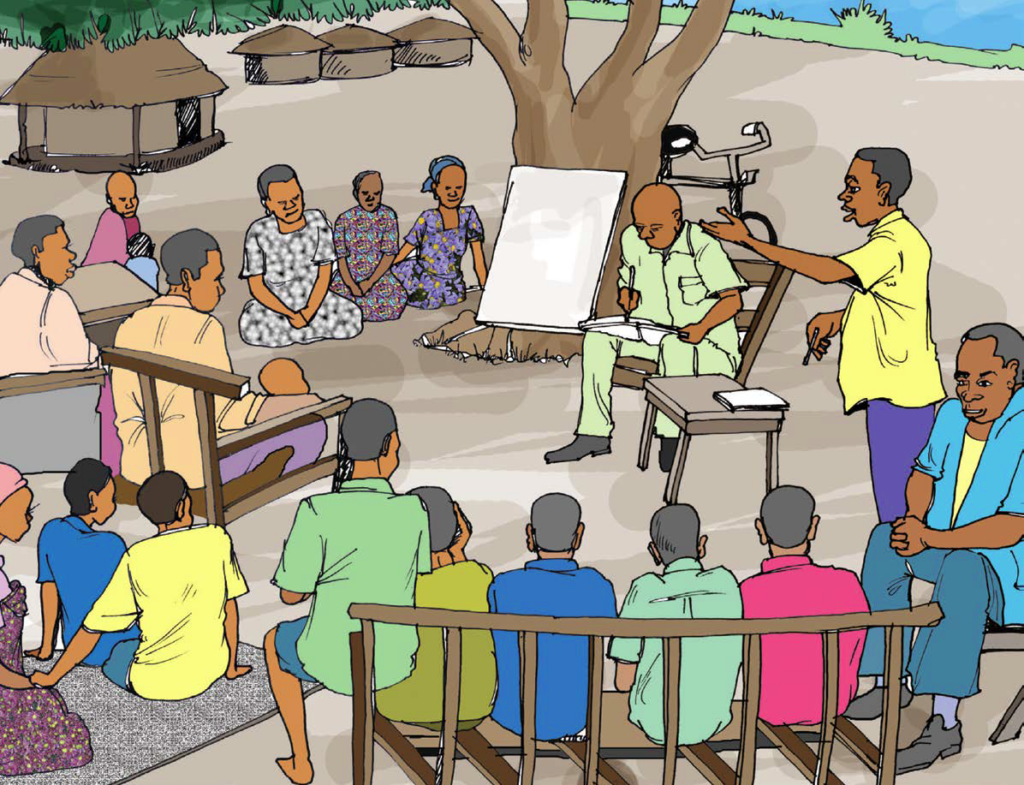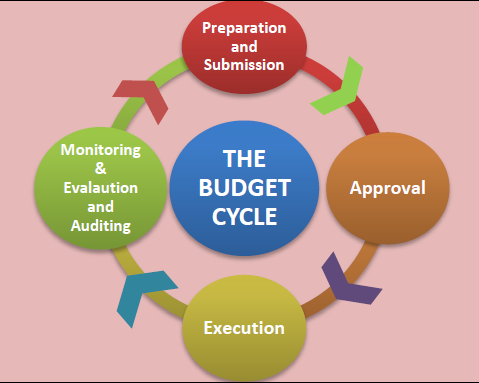
‘Demanding accountability’ illustration from Uganda citizen’s budget (2014)
National budget documents are most often dense, overly technical, and its implications not fully understood by citizens.
The use of locally-spoken languages, more accessible forms of communication, and limiting technical jargon, are some of the actions taken to improve budget transparency. The more common and far reaching has been the publication of the Citizens Budget (guide), which helps to describe: how revenue is raised; the budget allocation process; borrowing and debt; and spending priorities. In some cases, governments have also included in the citizens budget new programmes and reforms.
“Putting the citizen’s guide out is important because everyone wants to know what the government is doing and it is a strategic communication document to disseminate what the government is doing.”
CABRI’s Budget Enquirer reveals that 29 countries in Africa publish a Citizens Budget. Our soon to be published review of 10 of these countries - A review of citizens’ budgets in ten African countries - provides an analysis of the main trends and characteristics, basic concepts used in budget documents, revenue, expenditure, public debt, and policy priorities. The analysis also covers the format, language and visual aids used to explain the budget process.
Furthermore, case studies on the formulation, publication and dissemination of the citizens budgets in Nigeria, South Africa and Tanzania provide useful lessons for other African countries.

An illustration of the budget cycle in the Ghanaian citizens' budget (2016)
The number of African countries producing a citizen’s budget is increasing. However, the question remains whether the information presented and language used, allow citizens to understand the budget process and content. Although many budget documents are available online, the increased transparency achieved by publishing these documents, does not translate to citizens really understanding the budget (accessibility). Overall, CABRI’s review of citizens’ budgets (CB) in ten African countries, reveals that they are still too technical for most citizens to understand - for instance, just a few CBs contain a glossary to explain public finance terms.
Several countries around the world have
developed innovative ways to translate dense budget information into more
accessible language. Radio shows, YouTube videos, and comics are used to
socialise budget information, ensuring a larger portion of the population
understands the budget. A case in point is the Dominican Republic, which has produced
a guide to understanding
the budget, alongside a citizens
budget and a comic version
of the same publication. The comic
illustrates the budget through the everyday lives of citizens in urban and
rural areas of the Dominican Republic. This
use of easy-to-read language and illustrations provides another example on how
to simplify budget documents to reach a wide audience.
In 2017, our budget transparency work included, amongst others:
- A twinning project with the Ministry of Economy and Finance of Benin and the Ministry of Finance and Budget of Madagascar; and
- Overall strengthening of the capability of the Nigerian Ministry of Budget and Planning to produce quality and timely budget documents.
In both these projects, the publication of a comic version of the citizen’s budget, similar to that produced by the Dominican Republic will be produced. (Update: Nigeria's comic version has been published.)
Discussion of the National Budget’s approval in the comic version of the Dominican Republic citizen’s budget (2016)
“When citizens are presented with budgetary information in an easy to understand format, citizens are moved to act, pay taxes and they become more objective when hoping for services from government… The interest is spurring more participation and by extension, driving accountability and transparency”
CABRI collaborated with the BoF to produce a comic version that will be published in 4 newspapers. The comic will also be translated in the country’s main languages.
During CABRI’s twinning project on transparency and participation, Benin developed an action plan to improve budget transparency and participation.
“The translation [of the citizen’s budget] in 4 local languages allows the media to report to different segments of the population who aren’t able to read.”
Benin recently published their own comic of the Citizens Budget. This comic is set in a classroom to explain to secondary-school students the budget process in Benin. The Budget Directorate also produced a video to explain the 2018 budget. All this is to reinforce the government's commitment to public participation in the budget process.
African countries’ journey to greater transparency is a continuous process. Over the next few months, CABRI will work closely with countries like Benin, Guinea-Conakry and Nigeria to support reforms to improve budget transparency.